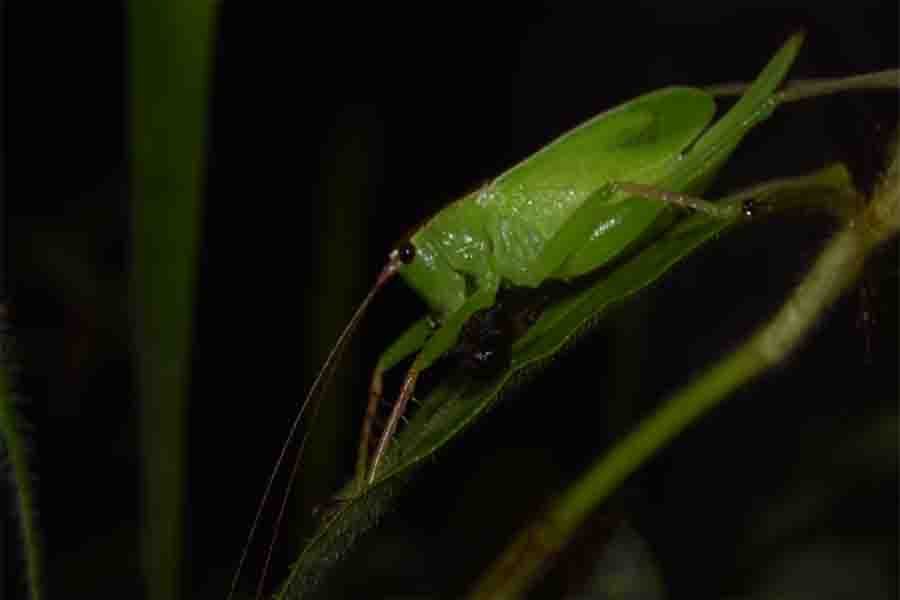A joint research team — comprising members of the zoology departments of Panjab University (PU) and those from Ashoka University, Sonipat, and those from National Institute of Science Education and Research, Orrisa — has discovered three new species of predatory bush cricket (scientific name Hexacentrus) in India.
The three new species were found in two study locations — a forested area around and inside the North Eastern Hill University (NEHU) campus of Shillong, Meghalaya, and in the forested area around Ashoka University Campus, Sonipat, Haryana.
As per details, two new species found in Haryana and were named Hexacentrus tiddae — borrowing heavily from the local dialect where bush crickets are referred to as tiddaes — and Hexacentrus ashoka, respectively.
The third species found in Meghalaya was named Hexacentrus khasiensis — after the Khasi hills where it was discovered. All the three new species are likely to now feature on Zootaxa, a scientific mega journal for animal taxonomists.
So far, at least seven species of Hexacentrus have been to exist in India. Hexacentrus is a genus of predatory katydids. In India, the genus Hexacentrus is represented by seven species of which six are morphologically characterized while one is only acoustically characterized.
As per details, the joint PU and Ashoka University team selected the pre-monsoon period (mid July to September) to study the collected samples. The samples were collected in 2019 and 2022. These were analyzed in the laboratories in PU and at Ashoka University.
“It was a seven member joint team. We selected two study locations. In this study, we describe three new species under the genus from India based on detailed morphological, stridulatory, and acoustic features”, Ranjana Jaiswara, a faculty member of the PU’s zoology department said. She said, “It took around two years to minutely studying the collected samples of hexacentrusa. We checked and cross-checked our findings with experts in India and abroad.”
The team members who took part in the exercise were Ranjana Jaiswara, Monaal from zoology department of PU; Aarini Ghosh, Bittu Kaveri Rajaraman, Vivek Dasoju from Ashoka University; and Shagun Sabharwal of NISER, Orissa.
